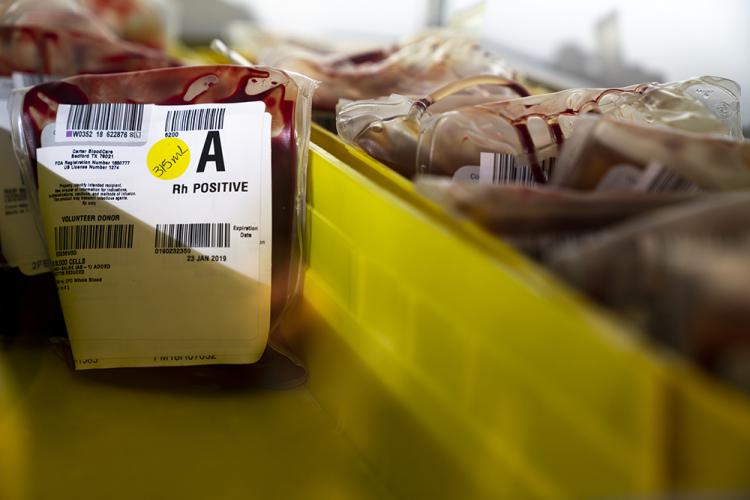
The blood supply in the Dallas-Fort Worth Metroplex has dwindled to uncomfortably low levels, causing a critical shortage to be declared across the area by JPS Health Network’s blood supplier, Carter BloodCare.
“This is as low as I can remember the supply getting,” said Marie Becerra, manager of Transfusion Services at JPS Health Network. “We’re scraping the bottom.”
At JPS, the only Level 1 Trauma Center in Tarrant County, the minimum acceptable amount of O Negative blood to have on hand is 35 units, according to Becerra. As of Friday afternoon, the health network had 12 units in stock.
Dr. Rajesh Gandhi, Medical Director of Trauma Services at JPS, said a lack of blood can tie the hands of trauma team members who are poised to save the lives of victims of crashes, accidents and violence around the clock, seven days a week.
“If a patient is actively bleeding, it’s not unusual to use 10-20 units of blood during one trauma case,” Gandhi said, adding that there are only about 1,000 units of all blood types, combined, currently on-hand in the entire Dallas-Fort Worth region. According to Carter BloodCare, there is less than a one-day supply of blood in stock for the region.
“Carter BloodCare typically likes to see 1,000 donors each day in order to maintain the community blood supply at a safe and sufficient level,” Doug Heath, director of lab operations for Carter BloodCare, said in an appeal for donors. “The week ahead shows an estimated 3,000 appointments short of that target. This is a situation that will not go away overnight.”
Type O Negative blood is known as the “universal blood type” because it can be used it people of any blood type. It is supplied to trauma patients because there isn’t often time to figure out what their blood type is during an emergency situation. Less than 7 percent of the population, or about one person out of 15, has O Negative blood. In addition to O Negative, the supply of A Negative, B Negative and O Positive are also critically low across the region.
Becerra said the health network isn’t planning to ask for in-house donations at this point. But team members and Tarrant County residents are encouraged to donate at one of the local, regularly-scheduled blood collection events to restock the local blood supply as soon as possible.
Becerra said, although the supply has dropped farther than usual, December and January are typically the toughest time of year to collect blood.
“The winter holidays are always a slow time for donations because people are traveling, high schoolers are on vacation and people are busy with other things and just aren’t donating,” Becerra said. “We’re reaching the time when the supply should start to go back up. Blood drives are happening, we just need people to get to them and donate.”
Why don’t hospitals and blood banks plan ahead for the holidays and stock up on their supply? According to the American Red Cross, red blood cells stored under refrigeration are only good for about 42 days. After that, the cells break down to the point that they can’t efficiently carry oxygen.
Gandhi, coincidentally, is scheduled to speak Tuesday at GPS about the need to conserve blood during surgery. He said the lecture is about putting in place best practices for surgery and that it’s not in reaction to the low blood supply.
Standard eligibility requirements to give blood are a minimum weight of 110 pounds, the donor can’t be ill and he or she must present a government-issued photo ID at each donation. Potential blood donors may volunteer at age 16 with parental consent; 17-year-olds and older may give independently. Text or call 800-366-2834, or visit carterbloodcare.org to make an appointment.
